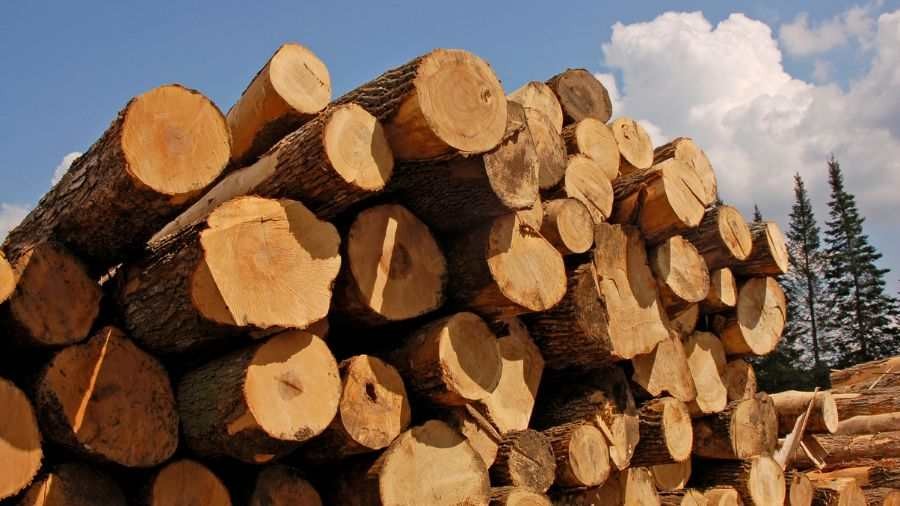The Growing Trend of Sustainable Timber Planks in Construction

Image: Collected
In a world increasingly aware of environmental concerns, sustainable timber planks have emerged as a popular choice for construction projects. These planks, sourced from responsibly managed forests, offer a greener alternative to traditional building materials.
Timber plank suppliers are meeting the growing demand for sustainable options by providing high-quality, eco-friendly products to construction companies worldwide. Their commitment to sustainability is crucial in ensuring that builders have access to materials that minimize environmental impact.
Wholesale timber planks have become a cost-effective solution for large-scale construction projects. By purchasing in bulk, builders can save on costs while still prioritizing sustainability. This has led to an increase in demand for wholesale options, prompting manufacturers to expand their production capacities.
Manufacturers of timber planks are constantly innovating to meet the stringent environmental standards required for sustainable construction. They utilize advanced technology and eco-friendly practices to produce planks that minimize carbon emissions and environmental degradation.
Timber plank exporters play a vital role in the global market by facilitating the trade of sustainable timber planks across borders. This helps promote eco-friendly building practices on a global scale and supports economic growth in timber-producing regions.
The rise of sustainable timber planks reflects a broader shift towards eco-conscious construction practices. Governments and industries are increasingly prioritizing sustainability, driving demand for greener alternatives to traditional building materials.
One of the key advantages of sustainable timber planks is their renewability. Unlike concrete or steel, timber is a renewable resource that can be harvested sustainably without depleting forests. This makes timber planks an attractive option for environmentally conscious builders.
Additionally, sustainable timber planks offer excellent thermal insulation properties, helping to reduce energy consumption in buildings. This not only lowers utility costs for occupants but also reduces greenhouse gas emissions associated with heating and cooling.
The natural beauty of timber adds to its appeal as a building material. The warmth and texture of wood create a welcoming environment in any structure, making it a popular choice among architects and designers.
Despite the benefits of sustainable timber planks, challenges remain in their widespread adoption. Concerns about deforestation, illegal logging, and habitat destruction persist, but organizations like the Forest Stewardship Council are working to address these issues through responsible forestry practices and certification programs.
Sustainable timber planks are revolutionizing the construction industry by offering a greener, more eco-friendly alternative to traditional building materials. With increasing demand and support from governments and industry stakeholders, the future looks promising for sustainable construction. As technology advances and sustainability practices improve, timber will continue to play a significant role in building the cities of tomorrow.
Timber plank suppliers are meeting the growing demand for sustainable options by providing high-quality, eco-friendly products to construction companies worldwide. Their commitment to sustainability is crucial in ensuring that builders have access to materials that minimize environmental impact.
Wholesale timber planks have become a cost-effective solution for large-scale construction projects. By purchasing in bulk, builders can save on costs while still prioritizing sustainability. This has led to an increase in demand for wholesale options, prompting manufacturers to expand their production capacities.
Manufacturers of timber planks are constantly innovating to meet the stringent environmental standards required for sustainable construction. They utilize advanced technology and eco-friendly practices to produce planks that minimize carbon emissions and environmental degradation.
Timber plank exporters play a vital role in the global market by facilitating the trade of sustainable timber planks across borders. This helps promote eco-friendly building practices on a global scale and supports economic growth in timber-producing regions.
The rise of sustainable timber planks reflects a broader shift towards eco-conscious construction practices. Governments and industries are increasingly prioritizing sustainability, driving demand for greener alternatives to traditional building materials.
One of the key advantages of sustainable timber planks is their renewability. Unlike concrete or steel, timber is a renewable resource that can be harvested sustainably without depleting forests. This makes timber planks an attractive option for environmentally conscious builders.
Additionally, sustainable timber planks offer excellent thermal insulation properties, helping to reduce energy consumption in buildings. This not only lowers utility costs for occupants but also reduces greenhouse gas emissions associated with heating and cooling.
The natural beauty of timber adds to its appeal as a building material. The warmth and texture of wood create a welcoming environment in any structure, making it a popular choice among architects and designers.
Despite the benefits of sustainable timber planks, challenges remain in their widespread adoption. Concerns about deforestation, illegal logging, and habitat destruction persist, but organizations like the Forest Stewardship Council are working to address these issues through responsible forestry practices and certification programs.
Sustainable timber planks are revolutionizing the construction industry by offering a greener, more eco-friendly alternative to traditional building materials. With increasing demand and support from governments and industry stakeholders, the future looks promising for sustainable construction. As technology advances and sustainability practices improve, timber will continue to play a significant role in building the cities of tomorrow.
Previous Story
- Wholesale Healthy Snacks Meeting the Growing Demand for...
- India's tech sector growth rate seen halving to...
- Paper Products Market - Shifting Towards Sustainability Amid...
- Indonesia 2023 GDP growth slows to 5.1%
- New Planes Every Week For a Decade -...
- Tesla sees slower 2024 volume growth as earnings...
- Unlocking Opportunities - Industrial Minerals Propelling Global Business...
- Revolutionary Advances in Livestock Nutrition with Fodder Additives...